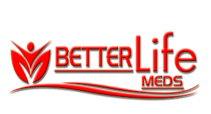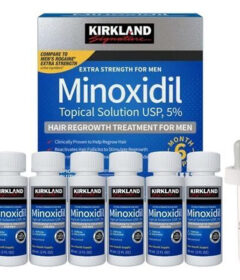Navigating Hives: Chinese Herbal Formula & Foods to Avoid

Urticaria, the medical term for hives, describes itchy skin welts resulting from an allergic reaction or other causes. Hives can be brought on by various factors, such as stress or medicine, but some foods can also trigger this condition. Additionally, the Chinese herbal formula for hives emphasises strict food intake to manage this condition. With that, it’s essential to comprehend which foods to avoid when one has hives and why they can worsen this condition.
1. Histamine-Rich Foods
During allergic reactions, the body releases histamine, heightening symptoms like inflammation and itching. Certain foods have a high histamine content by nature or can produce histamine, making them possible hives triggers. Consider these foods as examples:
Fermented Foods: Pickles, fermented dairy products, and sauerkraut have high histamine content, which can aggravate hives.
Aged Cheeses: Cheeses that have undergone ageing processes, such as blue, Parmesan, and cheddar, have higher histamine contents.
Cured Meats: The process of curing deli meats, bacon, and salami results in an alleviated histamine content.
2. Food Additives and Preservatives
A few common chemicals and preservatives in processed foods can cause hives for some sensitive people. Among these additions are:
Sulfites: Sulfites can cause hives and other allergic reactions and are used as preservatives in wine, processed meats, and dried fruits.
Artificial Colors and Flavors: Those sensitive to synthetic food colouring and taste enhancers may break out in hives.
MSG (Monosodium Glutamate): This flavour enhancer, common in Chinese and processed foods, has been connected to allergic reactions, including hives.
3. High Histamine-Inducing Foods
In addition to having histamine in them, some meals cause the body to release additional histamine, aggravating hives. Among these foods to avoid for hives include:
Shellfish: The potential of prawns, crabs and lobster to cause histamine release has made them notorious hive triggers.
Tomatoes: Tomatoes are nutrient-dense, but they also contain histamine, which can make hives worse, especially in sensitive people.
Spinach: This lush green vegetable is another food rich in histamine that could exacerbate the symptoms of hives.
4. Food Allergens
Food allergies are a common trigger for hives, with some allergens eliciting an immune response that manifests as skin welts. Common food allergens include:
Peanuts and Tree Nuts: Peanuts, almonds, and other tree nuts are potent allergens that can cause hives and severe allergic reactions.
Shellfish and Fish: Fish and shellfish allergies can cause anything from minor rashes to potentially fatal anaphylaxis.
Eggs and Milk: These staple foods can trigger hives in individuals with allergies to egg proteins or dairy proteins like casein.

Why Avoid These Foods?
Avoiding these food triggers is essential for managing hives and reducing the frequency and severity of outbreaks. Here’s why:
Prevention of Allergic Reactions: By eliminating histamine-rich foods, food additives, and common allergens, individuals can prevent allergic reactions that lead to hives.
Reduced Inflammation: The symptoms of hives can be made worse by high histamine levels and allergenic proteins found in some meals, which can increase inflammation in the body.
Improved Symptom Control: Identifying and avoiding food triggers can help individuals gain better control over their hives symptoms, leading to fewer flare-ups and less discomfort.
Chinese Herbal Formula for Hives
Some people use traditional Chinese herbal treatment in addition to dietary changes to relieve their hives. Xiao Feng San is one such mixture that includes herbs such as Ku Shen (Sophora Root), Jing Jie (Schizonepeta), and Fang Feng (Siler). These herbs may help ease skin irritation and lessen hives breakouts because of their anti-inflammatory and antiallergic qualities.
Conclusion
Hive management necessitates knowledge of and adherence to food cues. People can reduce the frequency of hives flare-ups and enhance symptom control by avoiding histamine-rich foods, food additives, common allergies, and foods high in histamine. For people who are experiencing hives, investigating complementary therapies such as Chinese herbal formulas for hives may also offer additional assistance.
Take control of your skin health. Visit Tangs Clinical TCM to learn more.



